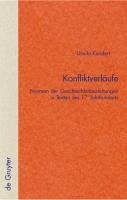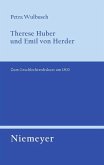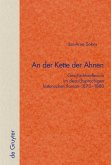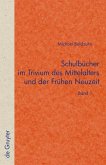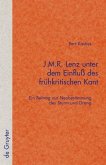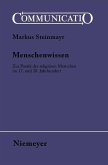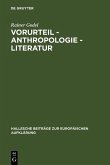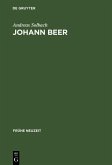The portrayal of conflicts transmits norms governing the mutual behaviour of men and women. This critical literary study identifies patterns of conflictual processes in such disparate 17th century texts as pastoral poems and regional regulations. It shows how the portrayal of conflicts gives readers an impression of social commitment.
Dieser Download kann aus rechtlichen Gründen nur mit Rechnungsadresse in A, B, BG, CY, CZ, D, DK, EW, E, FIN, F, GR, HR, H, IRL, I, LT, L, LR, M, NL, PL, P, R, S, SLO, SK ausgeliefert werden.
"Kunderts theoretisch sehr fundierte Studie ist von einer erfreulichen wissenschaftlichen Phantasie geprägt und gleichzeitig um theoretisch diffizile Fundierung bemüht."
Stefanie Arend in: Archiv für das Studium der neueren Sprachen und Literaturen 1/2007
"This study provides valuable new readings of both little-known and more familiar texts from this period in the light of recent theoretical developments. It contains some important insights into the texts and the discourses in which they are situated, which may well stimulate future work in this field."
Charlotte Woodford in: Modern Language Review 4/2006
Stefanie Arend in: Archiv für das Studium der neueren Sprachen und Literaturen 1/2007
"This study provides valuable new readings of both little-known and more familiar texts from this period in the light of recent theoretical developments. It contains some important insights into the texts and the discourses in which they are situated, which may well stimulate future work in this field."
Charlotte Woodford in: Modern Language Review 4/2006

